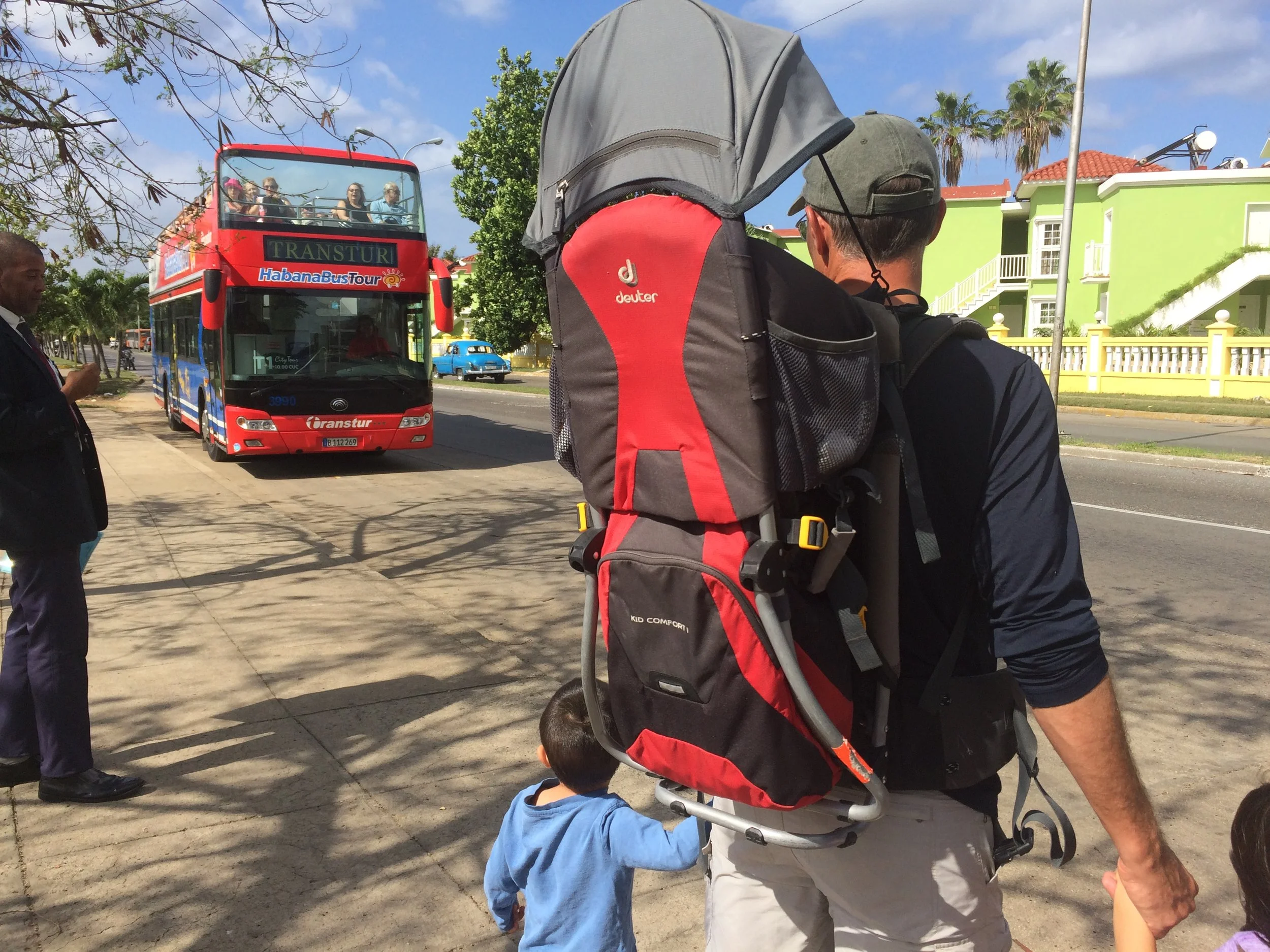A group of visiting friends from Texas and me in Old Havana recently.
We’ve basically been running a casa particular for the last several months. Our housekeeper has gotten used to replacing the sheets and towels of the downstairs guest bedroom every week. Our driver has familiarized himself with the terminals of the Havana Jose Marti airport. I’ve gotten so used to guests that I’ve even written my own welcome guide and itinerary to Havana. Most importantly, I’ve managed to track down enough toilet paper that I don’t have to worry about guests flushing down our entire supply.
More than two years ago, when we learned we were moving to Cuba and told our friends and family about it, we got tons of emails replying that they would visit. But in the first year or so of living here, my parents and in-laws and just a trickle of friends arrived at our doorstep. Few made good on their threats that they would come. After they looked into the hassle of travel, coupled by the fact that it was still technically illegal to come to Cuba, most our friends and family decided to wait.
But then something changed — direct flights from the United States began arriving in Havana.
Now suddenly our house and the rest of Cuba have been swamped by Americans. Every time we leave our house, whether it’s to the local pastry shop next door, or further away in the plazas of Old Havana, we hear American accent. (Yes, we Americans do have accents, according to the rest of the world). The United States still officially bans tourists from coming to Cuba, but plenty of Americans are finding legal excuses— whether it’s religious work, educational travel, or conferences and meetings — to come.
Tourists waiting for the double-decker bus in Havana.
And American/Western culture is everywhere. One of our favorite Cuban bands, Vieja Esceula — Old School — has built a steady following of locals by performing authentic, gut-wrenching renditions of Nirvana and ZZ Top. At the super-packed Fabrica de Arte nightclub and gallery the other night, a projector beamed a Mili Vanilli video onto an enormous wall, making an embarrassing footnote in our culture actually seem hip. That night, we heard Americans at the bar marveling about how short the flight was between Fort Lauderdale and Havana; and how nothing this cool (a nighclub-cum-gallery with two of the busiest restaurants in town on site) existed in even New York or San Francisco.
There’s a dark side to all of this. I’ve heard anecdotally that crime is up in Havana, especially thefts and robberies in bed-and-breakfasts. But no one knows by how much because the government doesn’t publish figures. Often, cash-strapped Americans, who arrive without doing their homework, end up at the gates of the U.S. Embassy in Havana after learning that their American credit and ATM cards don’t work here. (Don’t be one of these travelers — come with ALL the cash you will need for your trip.)
But with every enormous Carnival Cruise ship that disembarks or with every JetBlue flight that lands in Cuba, something positive is happening. Many of our Cuban friends, far from feeling unhappy about the cultural invasion, are welcoming American travelers with open arms. Many things are complicated in Cuba, but the answer to this question is cut and dry. "We need more of them," is the usual response when I ask them if the American influx bothers them. Americans mean cash, something that is in short supply in Cuba. We’ve seen hopeful Cubans who’ve opened cafes and restaurants recently become busy and exhausted in the last year, barely able to keep up with the demand.
Beyond that, the exchanges that are happening between Americans and Cubans are something magical. It was less than a decade ago that Cubans were banned — yes, banned — from speaking with foreigners. They are curious about our habits, and they want to visit the United States (particularly to go to Disneyland). They have showered us with warmth in our time here — sometimes to the point that it is overwhelming.
Recently, my family and I were walking back to our car after an outing and the parking attendant asked where we were from. “I LOVE YOU!” he howled after we told him, and he approached my husband to give him a bear hug. “When we were young, we learned that you were the enemy, but it’s not true,” he explained. My husband, a traditional New Englander, was a little overwhelmed with the outpouring of emotion, but he grinned and gave him a pat on the shoulder to prove that this Cuban was right — we were most definitely not the enemy.
Americans going home after trips to Cuba.


